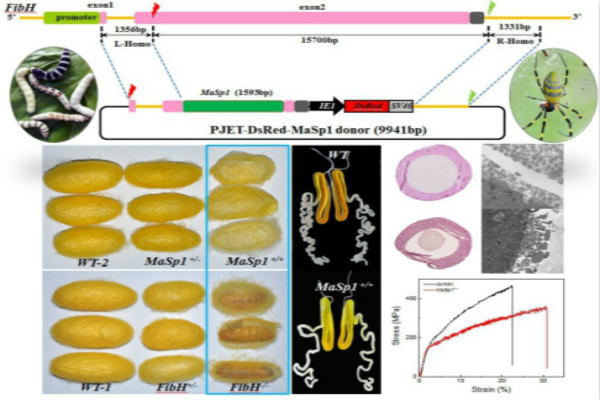 |
| [Photo/Xinhua] |
Chinese scientists have used gene-editing techniques to make silkworms produce spider silk, and have achieved efficient yields compared with earlier attempts.
Spider silk is one of the strongest and toughest natural fibers and has superior mechanical properties. However, it's hard to harvest spider silk in large quantities by raising spiders due to their territorial and cannibalistic behaviors.
Because silk fibroin and spider silk protein have certain similarities in structure, it was expected that genetically-modified silkworms might be able to produce spider silk fibers. Previous attempts had been made to introduce spider silk genes into silkworms, but the silkworms failed to produce spider silk proteins efficiently.
Scientists from the Center for Excellence in Molecular Plant Sciences at the Institute of Plant Physiology and Ecology under the Chinese Academy of Sciences reported a targeted gene replacement system in silkworms to make them produce spider silk with high efficiency. Testing showed that about 35 percent of the resulting silk was composed of the spider silk proteins, much higher than previously reported transgenic methods, which were only able to achieve approximately 0.3 to 3 percent.
The research provides a basis for the large-scale production of spider silk protein with genetically-modified silkworms, and this approach will shed light on developing new biomaterials, according to the research team.
The research was published in the journal Proceedings of the National Academy of Sciences of the United States of America.